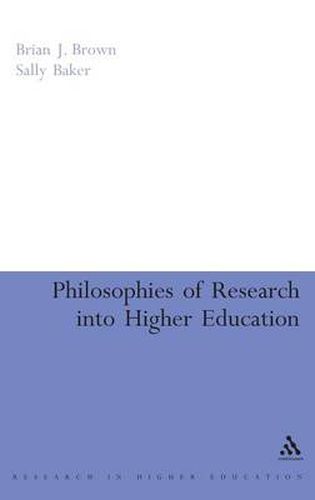Readings Newsletter
Become a Readings Member to make your shopping experience even easier.
Sign in or sign up for free!
You’re not far away from qualifying for FREE standard shipping within Australia
You’ve qualified for FREE standard shipping within Australia
The cart is loading…






Research in higher education could be more useful, innovative and better designed if we were clearer about the philosophical and epistemological basis of the theories that underlie our research methods. People who have to interpret research would do a better job if they were able to interrogate research more critically and appreciate its strengths and weaknesses. This volume provides this information for an audience of researchers, policymakers, students and lecturers in higher education.
The authors seek to create a dialogue with the reader about issues relevant to the philosophy of research and stimulate interest in how philosophy plays out in the real, everyday, political world, not least in education. Unlike many existing volumes on the market, this book creates a space in which readers can use the tools for thinking that the authors describe to interrogate their own experience.
$9.00 standard shipping within Australia
FREE standard shipping within Australia for orders over $100.00
Express & International shipping calculated at checkout
Research in higher education could be more useful, innovative and better designed if we were clearer about the philosophical and epistemological basis of the theories that underlie our research methods. People who have to interpret research would do a better job if they were able to interrogate research more critically and appreciate its strengths and weaknesses. This volume provides this information for an audience of researchers, policymakers, students and lecturers in higher education.
The authors seek to create a dialogue with the reader about issues relevant to the philosophy of research and stimulate interest in how philosophy plays out in the real, everyday, political world, not least in education. Unlike many existing volumes on the market, this book creates a space in which readers can use the tools for thinking that the authors describe to interrogate their own experience.